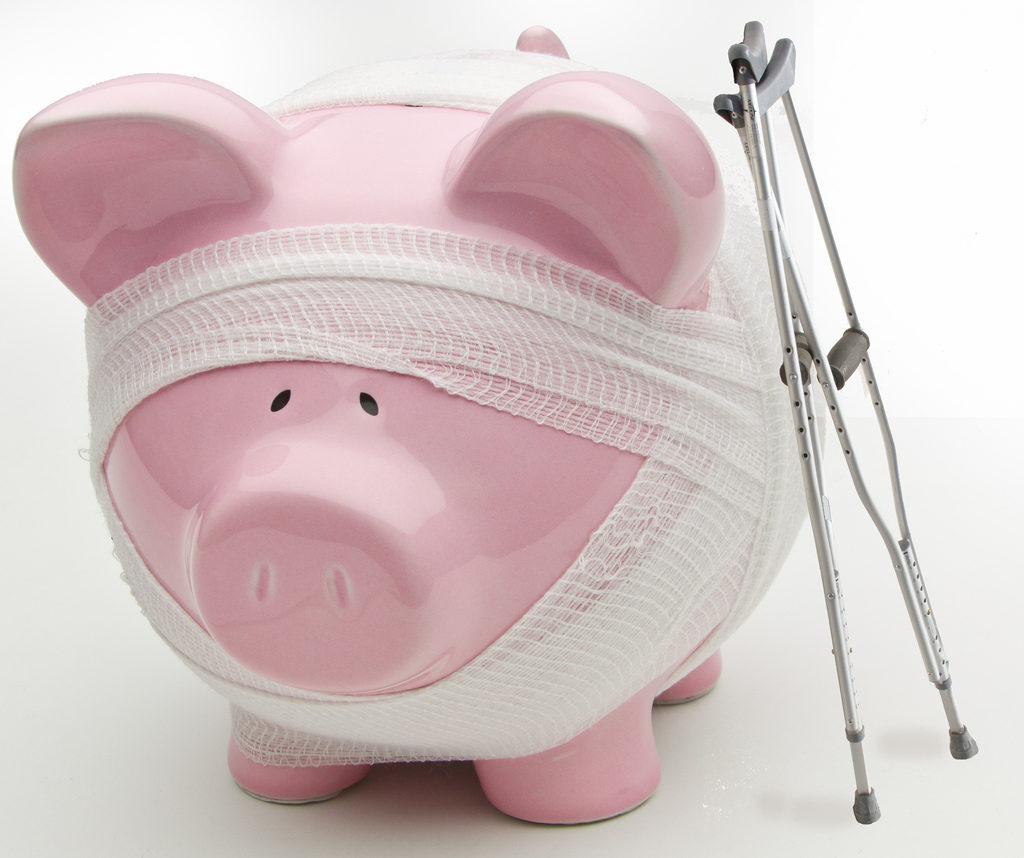
When you were a kid, it was easy to earn extra cash by doing extra chores, mowing lawns, babysitting, or helping your neighbors with tasks. You didn’t have to pay bills, so every penny you earned could be spent on anything you wanted.
As an adult, it can seem as if every penny you earn goes to some kind of bill just to survive. You’ve got to pay for rent, food, utilities, car payments, and if you’re like most Americans, a good portion of your income goes to credit card payments and medical bills (if you can pay at all). Medical bills have become the greatest source of debt in the U.S., and it’s not getting any better.
When you learn about these 18 ridiculous statistics regarding medical debt, it’s easy to see that the medical industry exists purely for profit.
Having insurance doesn’t mean you’re saving money
Some people are lulled into the belief that having medical insurance is the key to saving money, but that’s a myth.
A 2007 report released by the American Journal of Medicine showed that skyrocketing medical bills caused over 60 percent of bankruptcies in the United States. Ten years later, that number is still climbing. The startling fact about this situation is many of those who declare bankruptcy have health insurance when they incur their medical expenses.
Even people who don’t file bankruptcy are severely affected by high medical bills. In 2013, 56 million adults between the ages of 19-64 struggled to pay their medical bills.
If you’re facing a stack of medical bills you can’t pay, here are 3 things you need to know before you file bankruptcy:
- All medical bills are negotiable
The most important thing you need to know is that medical bills are negotiable, mostly because the majority of medical bills are inflated and contain charges for services the patient didn’t receive.
Often, your insurance company will negotiate with the hospital to lower your bills, but only when it suits them. They’re only going to negotiate with the hospital to lower their expenses.
One of the ways you can negotiate your medical bill is to request an itemized list of all procedures and services provided to you. It’s common for hospitals to bill $15 for an alcohol swab, or $20 for a Tylenol. Sometimes they’ll bill you for these services automatically, even if you didn’t receive them.
Go through your bills line by line and make sure that everything is correct. If not, call your provider and dispute your bill directly. Unfortunately, it’s up to you to discover the hidden fees they’re hoping you don’t notice.
Before negotiating with your provider, make sure you understand your insurance policy, (including your deductible, copay, and coinsurance) so you can also identify what items should be covered by your insurance company. When you find something that isn’t right, dispute it.
When you can spot the “errors” in your medical bills, you could potentially bring an unreasonable bill down to one you can pay in a reasonable amount of time, thus avoiding bankruptcy.
- Medical companies offer settlements after collections
Since unpaid medical bills in collections stay on your credit report for a number of years, the best way to avoid ruining your credit is to pay the bills on time. Even if you have to make small payments, it will help keep your bills in good standing. Of course, this isn’t always possible, and medical bills get sent to collections quickly.
Even when your medical bills get sent to collections, the original company is likely to offer you a settlement deal at some point. If you receive this kind of offer and you can afford the settlement payments, don’t hesitate to take care of it. This will pull you out of collections, and you’ll be less likely to develop a need to file bankruptcy.
- You can hire a medical billing advocate to help you
Medical debt is overwhelming enough, but trying to sort it out and negotiate on your own can be even worse. It’s possible to hire someone to handle it for you. These people are called medical billing advocates, and they know exactly how to read and interpret your itemized medical bills to spot inconsistencies, errors, and hidden fees.
A billing advocate can also spot items billed individually that should be grouped together under a different billing code. Medical companies bill items individually in order to get more of your money, and they count on you not knowing these items should be billed as a group code.
Before filing for bankruptcy, try these tips and see what you can negotiate with your bills. In most cases, you should be able to shave off some unnecessary charges from your bills and work out a reasonable payment plan.